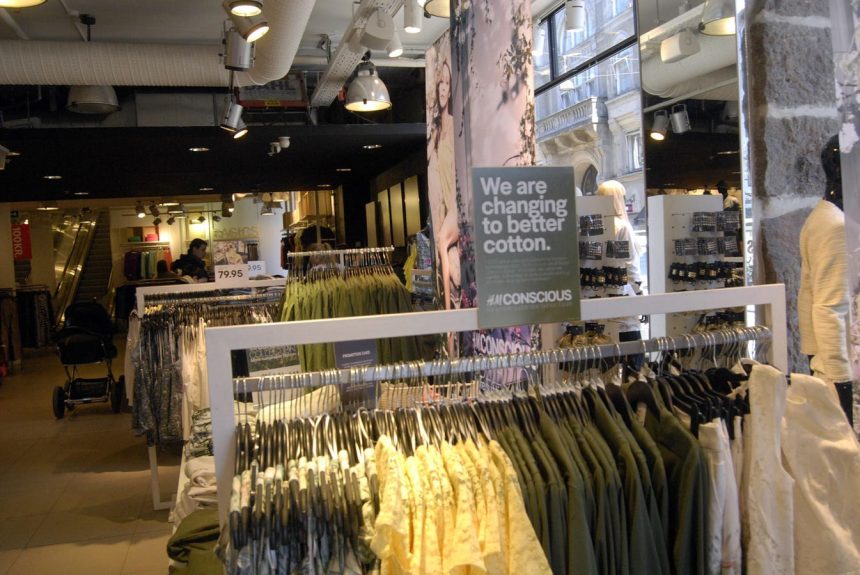Sustainability Initiatives in the Fashion Industry for 2025
Despite a potential downturn in the fashion industry’s focus on sustainability, several brands are maintaining their commitment to eco-conscious practices. These initiatives encompass a broad range, from reducing environmental impact and promoting circularity to enhancing social responsibility within their supply chains. The brands highlighted below demonstrate a diverse approach to sustainability, addressing issues such as carbon emissions, material innovation, worker safety, and educational programs.
Chanel’s Focus on Net-Zero and Education: Luxury powerhouse Chanel is steadfast in its pursuit of net-zero emissions across its value chain by 2040. A key milestone for 2025 is achieving 100% renewable energy usage in all owned assets. The brand is also investing heavily in data collection and analysis to pinpoint carbon emission hotspots and refine its transition plan. Beyond environmental goals, Chanel emphasizes social responsibility through its ongoing partnership with Cambridge University, aiming to educate employees on sustainability topics and develop innovative solutions. Collaboration and collective action remain central to Chanel’s strategy, seeking partnerships to promote a thriving ecosystem for nature, people, and business.
VF Corporation’s Commitment to Supplier Well-being: VF Corporation, the parent company of prominent brands like Vans, The North Face, and Timberland, prioritizes a holistic approach to sustainability. Their efforts encompass inclusion, diversity, equity, community engagement, supplier human rights, climate action, responsible material sourcing, and supply chain transparency. In 2025, VF is intensifying its focus on supplier health and safety, particularly on preventing gender-based violence. Building on existing programs, VF aims to expand training initiatives and factory safety programs, incorporating worker feedback into continuous improvement processes.
Barbour’s Emphasis on Product Longevity and Repair Services: British heritage brand Barbour, renowned for its durable outerwear, is championing product longevity through its repair and maintenance services. The successful "Wax for Life" program, catering to waxed jacket rejuvenation, is being complemented by "Quilt for Life," a service dedicated to repairing and cleaning quilted jackets. Initially launched in the UK, Barbour plans to expand these services to other global markets in 2025, further demonstrating their commitment to extending the lifespan of their products and reducing consumer waste.
PANGAIA’s Pursuit of Material Innovation and Sustainable Practices: PANGAIA, a materials science company known for its vibrant apparel, continues to push the boundaries of sustainable innovation. Despite recent leadership changes, the brand remains committed to its "Responsible Innovation" pillars, focusing on transitioning away from fossil fuels, protecting biodiversity, ethical sourcing, water conservation, and circularity. A key initiative for 2025 is the launch of the "PLNT Nylon" capsule collection, featuring a 100% bio-based nylon alternative derived from castor seeds. PANGAIA also has plans to unveil further material innovations later in the year, solidifying its position at the forefront of sustainable material development.
Prada Group’s Multifaceted Sustainability Approach: Prada Group, a leading player in the luxury sector, maintains a strong focus on sustainability while achieving robust financial performance. The brand’s commitment is exemplified by the launch of a new campaign for its recycled nylon collection, accompanied by a documentary series produced in collaboration with National Geographic. Furthermore, Prada continues its partnership with UNESCO through the "SEA BEYOND" program, focusing on ocean conservation education and research. New initiatives related to glacier and coral research are planned for 2025, underscoring Prada’s dedication to environmental preservation.
Patagonia’s Pursuit of PFA-Free Products and Climate Action: Outdoor apparel brand Patagonia is set to achieve a significant milestone in 2025 by eliminating intentionally added PFAs (per- and polyfluoroalkyl substances) from all its products. This achievement, resulting from over a decade of research, will be shared with the industry to encourage broader adoption of PFA-free alternatives. Patagonia is also dedicated to expanding its repair services through collaborations like the United Repair Centre, aiming to repair 100,000 items annually in Europe by 2028. The brand remains focused on its ambitious 2030 climate goals, striving to achieve net-zero emissions across its value chain by 2040. The Holdfast Collective, Patagonia’s primary owner, continues to support environmental initiatives through significant donations to organizations like The Redford Centre and the Santa Barbara Botanic Garden. These examples demonstrate the diverse approaches brands are taking to integrate sustainability into their core business practices. They showcase not only a commitment to environmental protection but also to social responsibility, innovation, and long-term value creation.



